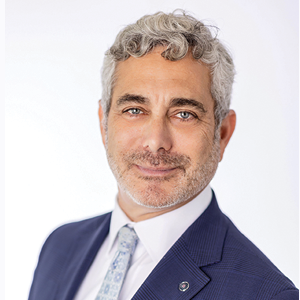Domestic Violence Protective Order – What to Do Next
What is a Domestic Violence Protective Order?
A domestic violence protective order (DVPO) is a court order that is designed to protect victims of domestic violence from further abuse, These orders are issued by a judge and they can require the abuser to stay away from the victim, stop contacting them, and/or vacate a shared residence. These orders can also provide additional protections, such as requiring the abuser to surrender firearms or pay temporary child support.
In Maryland, there are three types of protective orders that can be issued:
1. Emergency Protective Order (EPO) - An EPO is a temporary order that can be issued by a commissioner or judge after hours or on weekends when courts are closed. It can last up to 48 hours and is designed to provide immediate protection to victims of domestic violence.
2. Interim Protective Order (IPO) - An IPO is a temporary order that can be issued by a judge after an EPO has expired. It can last up to 7 days and is designed to provide temporary protection until a final protective order hearing can be held.
3. Final Protective Order (FPO) - An FPO is a longer-term protective order that can be issued after a hearing in which the victim must prove that they have been abused by the abuser. It can last up to one year, but it can be extended if the victim requests an extension before it expires.
How to Obtain a Protective Order in Maryland?
To obtain a protective order in Maryland, victims of domestic violence must file a petition with the court. The petition can be filed in the county where the victim lives, where the abuse occurred, or where the abuser lives. It must include specific information about the abuse that has occurred. This includes the date, time, and location of the abuse. Victims can also include any evidence they have, such as photographs or medical records.
Once the petition is filed, a judge will review it and decide whether to issue an EPO. If an EPO is issued, the victim will be notified and the abuser will be served with the order. A hearing for an IPO or FPO will be scheduled within 7 days of the EPO or the date that the petition was filed, whichever comes first.
At the hearing, both the victim and the abuser will have the opportunity to present evidence and testimony. If the judge finds that the victim has been abused, they may issue a protective order. If the judge does not find that the victim has been abused, the order will not be issued. The victim may then need to explore other legal options for protection.
What Can a Protective Order Do?
Protective orders can provide many different types of protection for victims of domestic violence.
These can include:

- Requiring the abuser to satay away from the victim's home, workplace, orother locations that the victim frequents
- Prohibiting the abuser from contacting the victim, either directly or through third parties
- Requiring the abuser to surrender any firearms they may have
- Prohibiting the abuser from committing any further acts of abuse
- Requiring the abuser to pay temporary child support
- Ordering the abuser to attend counseling or treatment programs
- Allowing the victims to have exclusive use of the family home
It is important to note that protective orders do not guarantee the safety of the victim.
Also, it is crucial to note that acts which can result in the issuance of a protective order are almost always criminal in nature. Therefore, a consideration for a person defending a protective order is the fact that they may also be prosecuted criminally.
Is someone is trying to get a protective order against you? It is important to have an experienced criminal defense attorney on your side.
At Craig M. Kadish and Associates, we have been helping people with domestic violence cases for over 30 years, and we can help you or your loved one. Contact us today to schedule your free consultation.


